Rape revelations lay bare the Canberra bubble’s dark heart
The trauma inflicted on Brittany Higgins is terrible, but the partisan political responses have been odious and confected.
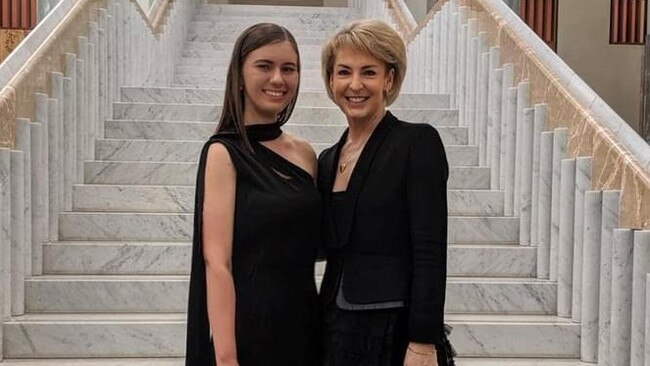
Sadly, the controversy has played to the preoccupations of the Canberra bubble. A horrible alleged rape inside Parliament House, reported by media in Parliament House, prompting discussion about the culture inside Parliament House, roundly condemned by those who exist in that culture, who, true to this culture, quickly forget the alleged crime, victim and broader issues in favour of partisan politicking to frame a prime ministerial scapegoat in Parliament House.
Away from this hyper-political world, most of us considering a sexual assault would focus on care for the victim and the pursuit of justice a thousand times before contemplating political opportunities or consequences.
Not in Canberra.
It is a sad reflection on the toxicity of our polarised politics, and the lack of humanity in what passes for political journalism, that two years after a young woman was allegedly raped, the media pack is obsessed with an ugly Twitter-level meme about whether the Prime Minister must have known about an obscene crime, and covered it up. It is as though some members of the gallery are so digitally desensitised and consumed with resentment that they don’t know whether they are in the House of Representatives or House of Cards.
Higgins claims to have been the victim of a brutal crime out of hours in her workplace at the hands of a colleague — the fact she was left alone and distraught in her minister’s office, while the person who had taken her there had gone, is instructive and chilling. She deserves enormous sympathy and respect for attempting to deal with this in whatever way she chooses.
Higgins decided not to pursue police action in 2019, as was her right. She says she felt like a “political problem” under pressure to move on, but confirms she was offered support if she chose to go to the police.
Yet the way our media/political class has handled these revelations does warrant scrutiny. The focus has been on point-scoring over personal understanding.
Some salient facts have not been shared with the public. It is as though Parliament House is a black hole that sucks even the most private traumas into a dark mass of political considerations, devoid of light or empathy.
For good or ill, Higgins’ claims were revealed in a carefully orchestrated media barrage which coincided with the first day of a parliamentary sitting fortnight. Central in these arrangements was Higgins’ partner David Sharaz, a former SBS and Sky News journalist. Sharaz and Higgins cannot be criticised for choosing to deal with the issue and the media in this way. But it is reasonable to expect that journalists would be more open about the way this unfolded.
The context is important and would have been known by most of the gallery. Sharaz, who was a work colleague of mine for a time at Sky, discussed his role with me this week.
He and Higgins spent a month compiling and planning the revelations and chose to take the initial story to Lisa Wilkinson at Channel 10 and Samantha Maiden at news.com.au. Other media, including senior gallery reporters at the ABC and commercial media, were provided with a dossier, including a timeline, lists of people who were aware of the allegations, photos of Higgins with politicians, suggested events where networks might find video footage of her in their files, notes about meetings, and copies of emails, texts and other relevant communications.
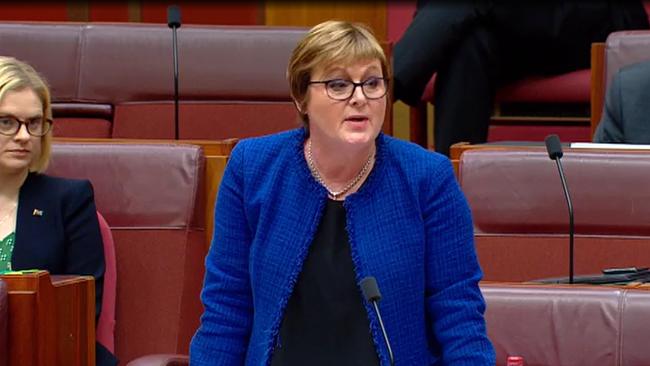
The inescapable and presumably intended takeout from the dossier is that much was known by many and not enough was done. Yet this overlooks the crucial reality that until two weeks ago, Higgins demanded privacy and, although she met with police, had chosen not to pursue action.
Higgins and Sharaz wanted to ensure that journalists had supporting materials for these explosive revelations, and did not want to be overwhelmed with queries. Sharaz knew what it was like to open up; in 2018, he detailed personal traumas and mental health issues in The Canberra Times and espoused the benefits of confronting them publicly.
This background helps to explain how, seemingly out of the blue, a young woman’s rape allegation became the dominant media and political issue of a sitting period in Canberra. Sharaz seems genuinely shocked at how all-consuming the controversy has become — and if he is surprised, then it must be worse for Higgins.
Their efforts have flushed out more information; journalists have probed other aspects of the case and brought to light crucial new facts, such as the repercussions among security staff and the prompt cleaning of the office. One concern will be whether the publicity compromises the investigative and judicial processes, a concern raised obliquely by AFP Commissioner Reece Kershaw in his letter to the Prime Minister on Thursday.
The most important step in this case came on Wednesday when Higgins met with the AFP to reactivate an investigation. On the same day, her former employer, Defence Minister Linda Reynolds, was hospitalised just hours before she was due to appear at the National Press Club, where she would have been questioned about the episode.
On April 1, 2019, nine days after the alleged crime, Higgins told Reynolds she was raped in her office. The alleged victim declined to pursue police action and asked for privacy, yet Reynolds has been widely criticised for not reporting the episode to others, including the Prime Minister.
This seems an extraordinary attack — to condemn someone for respecting the wishes of an alleged rape victim. The presumption of the media and political attack has been that a crime was committed, and it was not taken seriously enough.
On the ABC on Tuesday night, Leigh Sales asked Social Services Minister Anne Ruston: “Are you seriously saying if a serious crime was committed in your office in Parliament House that you wouldn’t think that you were obliged to tell the Prime Minister?” The following night she asked the government’s Senate leader, Simon Birmingham: “As a minister, if a criminal incident took place in your office, would you feel it your obligation to inform the Prime Minister?”
Such questioning either deliberately or unthinkingly ignores how the alleged victim had decided not to pursue police action — so there was no “crime” as such — and had understandably requested confidentiality. Under these circumstances, Reynolds could not have referred this matter to anyone.
The alleged perpetrator had lost his job for other, related reasons. Higgins’ employment was continued and progressed.
Many of the journalists pursuing the political angles in this case have previously been incurious about historical rape allegations against a senior Labor politician, even though the alleged victim has continued to agitate. The perfectly reasonable justification for avoiding examination of this case is that a police investigation did not result in charges.
This is a useful and fair threshold for the handling of these cases. Yet the standard in the current debate appears to be entirely different — politicians and journalists argue that the incident should have been treated as a rape crime in Parliament House by everyone up to and including the Prime Minister, even though police action was not being pursued and the victim wanted privacy.
This is not to criticise Higgins; the disincentives to take police action are many and understandable. Friends, family, and employers might be eager to offer support but also wary about imposing pressure.
Such a delicate balance cannot be easy for anyone, which is why former Howard government minister Amanda Vanstone has defended Reynolds, saying her response was entirely appropriate. “I understand through the media that the Prime Minister’s annoyed he wasn’t told,” Vanstone told me on Sky News this week. “I am assuming she (Reynolds) thought, well if this young lady said she wants it kept to herself, she doesn’t want to go any further with it, it is not my place to go and tell the Prime Minister about it because she’s not treating it as a criminal matter at this point.”
Yet Reynolds has apologised to Higgins. So we know she believes, with hindsight, that she could have done more.
I have been unable to speak with the Defence Minister, and now she is on medical leave, but given all of the above, we might presume she still could not have broken confidences and treated this incident as if a crime had been proven. Rather, she might wish she had given Higgins more pastoral care, minimising her emotional and professional trauma, perhaps leading to different decisions about police action.
This is conjecture. But if Higgins’ personal welfare was not prioritised, then personal regret would be as difficult for Reynolds as the political pain.
All this raises legitimate discussion about the culture in Canberra, where ambitious, impressionable and powerful people gather, away from home, with pockets full of travel allowance. Yet it is hardly dissimilar to the culture at a lawyers’ convention, teachers’ retreat or journalism conference — adults are responsible for their own behaviour and not all should be tarred by the actions of the worst.
The trauma inflicted on Brittany Higgins on Capital Hill is terrible. Possibly the greatest benefit from her choice to go public has been that other women have come forward with evidence suggesting this episode fits a pattern of behaviour by the alleged rapist. This requires police action, and fast.
But the partisan political angle is odious and confected. Much of what we have heard in the public debate and parliamentary attacks has been brutal, vicious and opportunistic politicking.


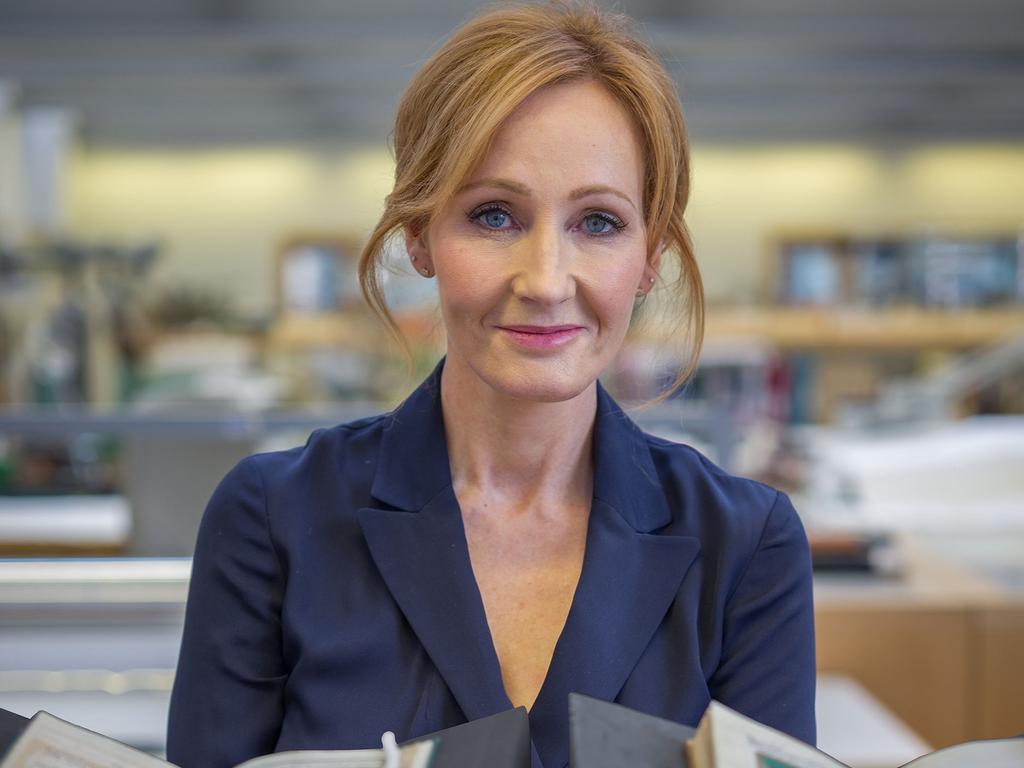
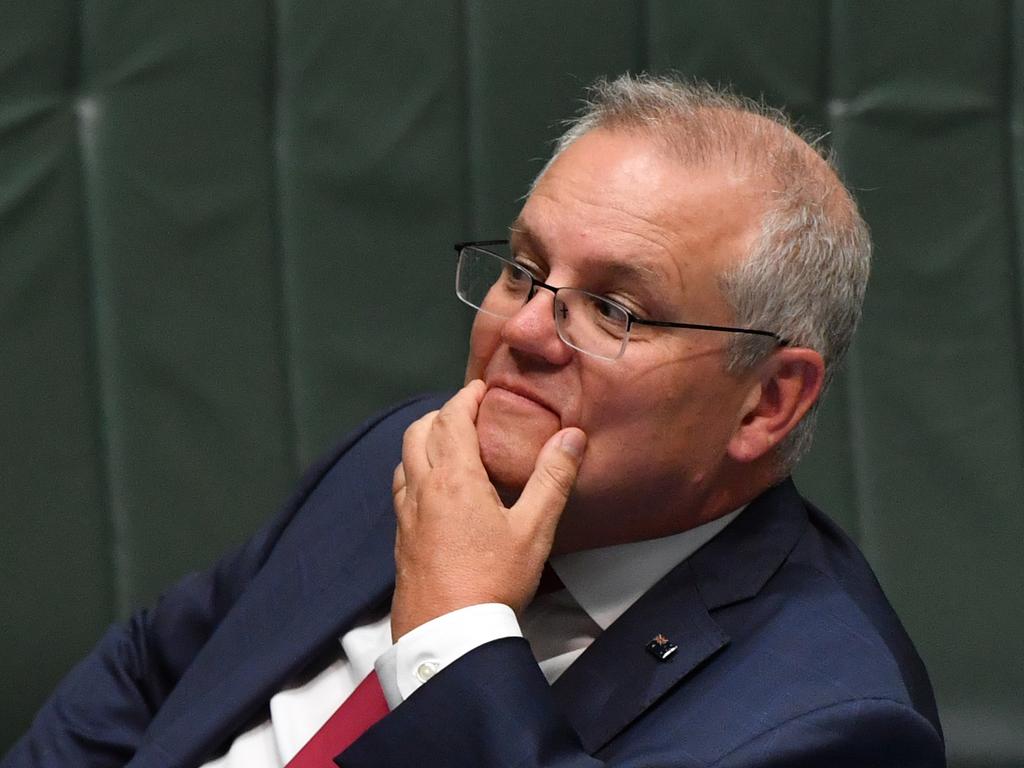
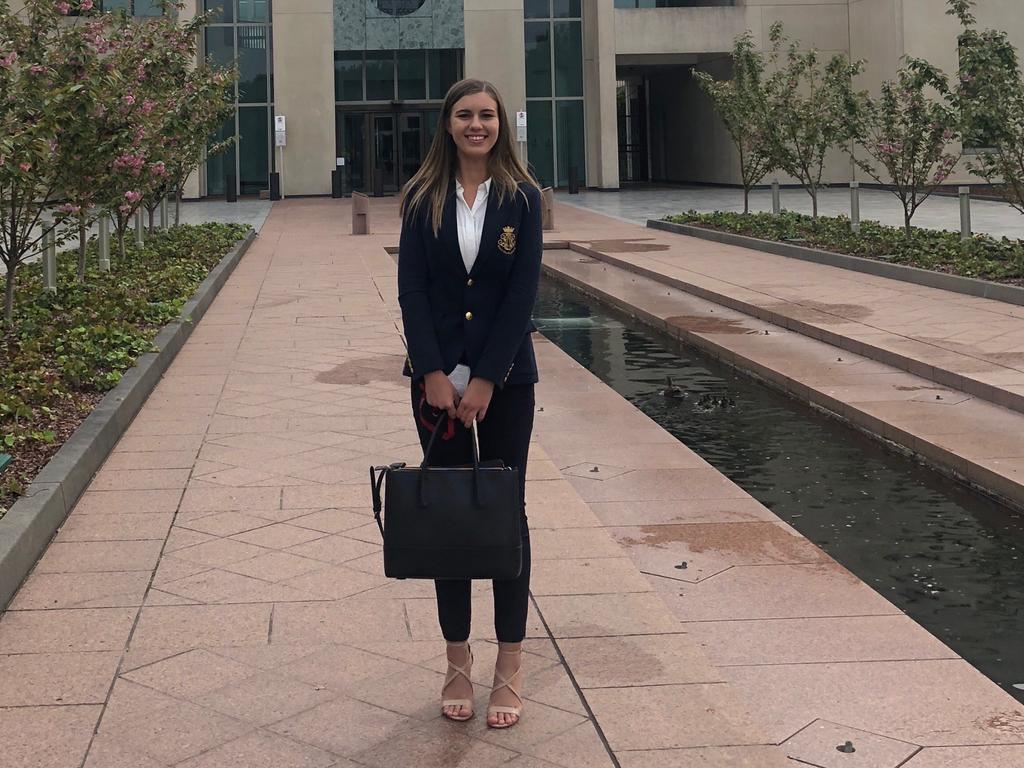


The heroic outcome of Brittany Higgins’ brave Parliament House rape revelation is how she has shown that the scourge of so-called date rape, and the unfair vulnerability of women in places and company that should be safe, can surface even in the ministerial wing of the building that makes our laws. This is an intolerable and sickening reality check on the flaws accompanying humans everywhere.